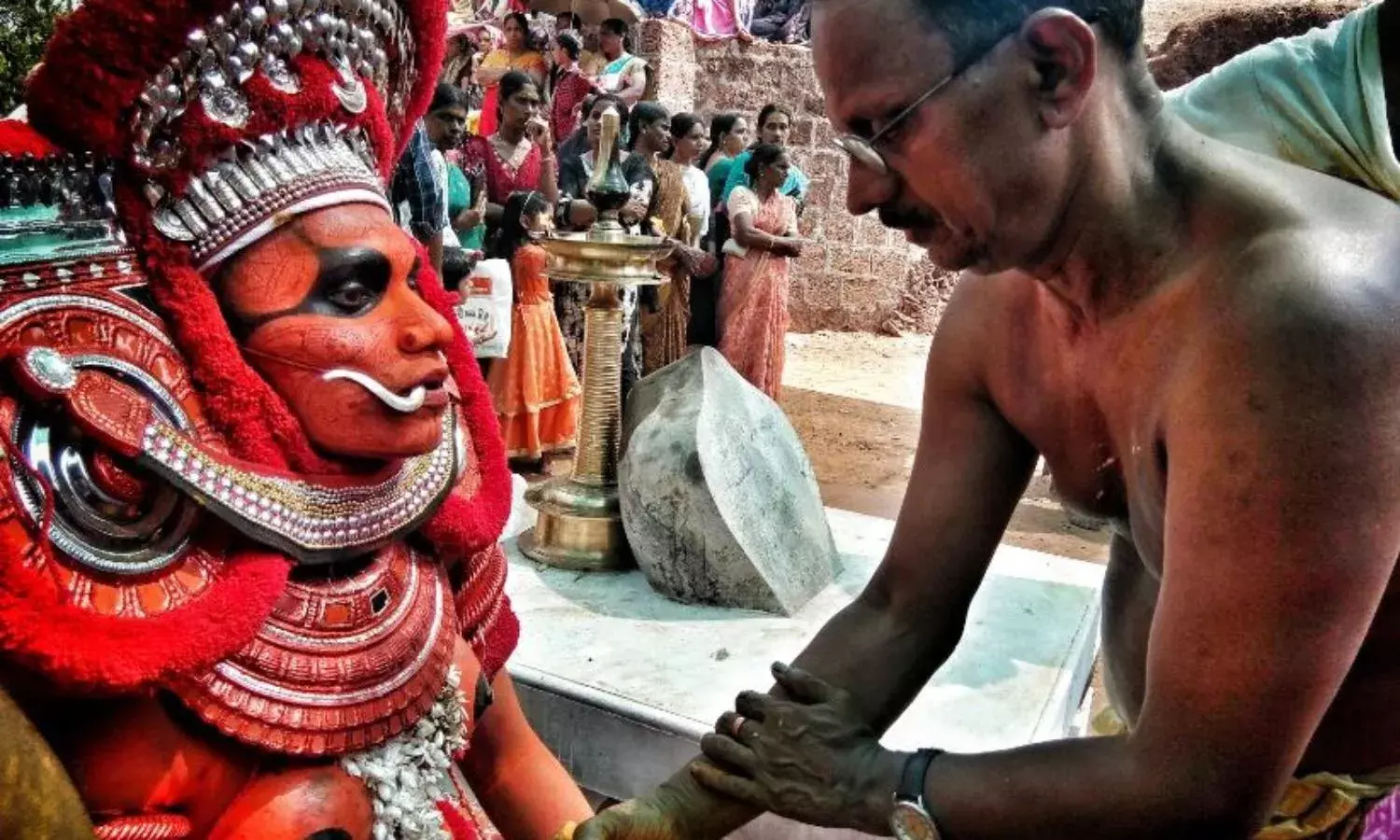Meeting the Othered Gods of Kerala - Theyyam
'Theyyam is a self-quoted world'

In the heartland of Kannur lies the small town of Mayyil, a hub of the famous, hypnotic Theyyam art form rich in pageantry. In March with a blazing sun, in a dusty rustic environ, hundreds of people gather on a small hilltop near a kavu (temple) in a remote village near Mayyil.
People,
They sit,
They stand,
They climb trees,
They peep from the crowd,
They rest on the highest rock in a flock,
They roar, they provoke, they sing to the gods,
Until they come down and,
Possess the humans who are set to perform the spectacular act of being
THE THEYYAM!
The alluring art form is performed in Kerala’s northern districts such as Kozhikode, Kannur, Wayanad and Kasargod, from January till late March.
The right to perform Theyyam is restricted to certain communities like Vannans, Alayans, Pulayans, Anjuttans. Nowadays the aboriginal roots of this tradition are sustained through financial help from families performing the legacy of Theyyam, through communities and remittances from the Gulf.
Theyyams were ritually controlled by dominant castes but with the loosening of rigid caste structures it is performed by people from the lowest rung of society.
“Theyyam is a self-quoted world where our obligation to caste, community, society and religious faith assume a sacrosanct dimension,” says Rajesh Komath, a Theyyam artist and professor of social sciences at MG University.
As Theyyams, performers denied esteem by caste society seem to assert their identity with pride. They acquire a divine, enigmatic, powerful stature that makes them immune, for a while, to the regressive caste hierarchy.
Devotees worship the Theyyam, touch their feet, whisper their problems in their ears, seek blessings for newborns and express their anxieties in hopes of redressal when they are dazed in a trance.
Preparing artificial sacrificial blood for performance
Priests placing Mudi (huge headgear) on Theyyam
Chief priest devoting Sandal Paste, Turmeric and Petals before starting of performance as good omen
Theyyam listening to devotees
The sacrificial blood, banana leaves and flowers to devote for performance
Children on top of rocks, awaiting the much anticipated act
The God’s and earth they belong to!
Theyyam gazing at crowd
Theyyam blessing devotees and accepting cash and Kind
Theyyam holding a weapon signifying its stature as the ‘other’ god, the protector of aboriginal
Komaram during a hypnotic- frenzied dance before arrival of Theyyams
Theyyam in trance dancing on rythmic beat of Chenda, Kuzhal and Ilathal



